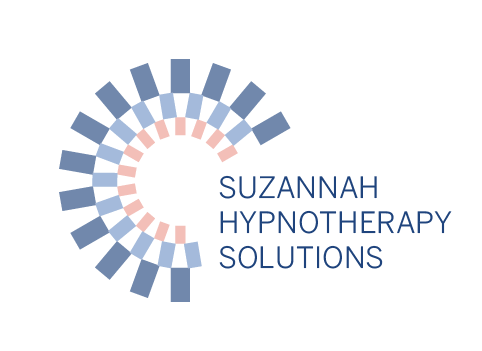Understanding sleep disorders
Sleep disorders can disrupt your regular sleep patterns and impact your daily life. They can cause difficulty falling asleep, staying asleep, or feeling rested upon waking up. Common sleep disorders include insomnia, sleep apnea, restless leg syndrome, and narcolepsy. These disorders can be caused by various factors such as stress, anxiety, medical conditions, or poor sleep habits. Hypnotherapy is a technique that uses guided relaxation and focused attention to help you achieve a calm and relaxed state. This can lead to improved sleep patterns by addressing the underlying issues that contribute to sleep disorders.

What is hypnotherapy?
Hypnotherapy is a form of therapy that uses hypnosis to help individuals create positive changes in their thoughts, feelings, and behaviors. During a hypnotherapy session, a trained therapist guides the individual into a relaxed state where their subconscious mind becomes more open to suggestions. This can help address a wide range of issues, including sleep disorders, anxiety, phobias, and addiction. Hypnotherapy can be a valuable tool for those seeking alternative treatments for sleep disorders, as it aims to address the underlying causes of the problem while promoting relaxation and improved sleep patterns.
Benefits of hypnotherapy for sleep disorders
Hypnotherapy can help with sleep disorders by reducing anxiety and promoting relaxation, which are common contributors to sleep issues. It can also address underlying issues that may be causing the sleep disorder, such as stress or trauma. Additionally, hypnotherapy can improve overall sleep quality and help individuals establish healthier sleep patterns.
How does hypnotherapy work for improving sleep?
During hypnotherapy for sleep, a therapist uses relaxation techniques to help you access your subconscious mind. This can help address any underlying issues or anxieties that may be affecting your sleep. The therapist may also provide suggestions for improving sleep quality, such as promoting relaxation and reducing negative thought patterns. This approach aims to retrain your mind to achieve a more restful and rejuvenating sleep experience.
Different techniques and approaches in hypnotherapy
There are various techniques and approaches used in hypnotherapy to treat sleep disorders. Some common approaches include progressive muscle relaxation, visualization, and suggestion therapy. Progressive muscle relaxation involves tensing and then relaxing different muscle groups in the body to promote relaxation. Visualization, on the other hand, uses mental imagery to create a sense of peace and calm. Suggestion therapy involves using positive statements and suggestions to help reframe negative thought patterns and promote better sleep. It’s essential to work with a qualified hypnotherapist who can tailor the approach to your specific sleep disorder and individual needs.
Finding a qualified hypnotherapist
When looking for a hypnotherapist to help with your sleep disorders, it’s important to find someone who is qualified and experienced. Here are a few things to keep in mind when searching for a hypnotherapist:
- Look for a certified hypnotherapist who has completed accredited training programs.
- Consider the therapist’s experience in treating sleep disorders using hypnotherapy.
- Check for any reviews or testimonials from previous clients to gauge their effectiveness.
- It’s also important to feel comfortable and trust the hypnotherapist, so consider scheduling an initial consultation to see if you feel a connection.
Finding the right hypnotherapist can greatly impact your success with hypnotherapy for sleep disorders.
What to expect during a hypnotherapy session
During a hypnotherapy session, you can expect to be in a relaxed state while the therapist guides you through suggestions to help with your sleep disorders. The therapist will likely start with a conversation to understand your specific sleep issues and concerns. Then, they will use techniques to induce a state of focused attention and deep relaxation. You may feel more open to suggestions, but you will not do anything against your will. The session typically lasts around 60 minutes, and the number of sessions needed varies depending on individual circumstances.
Success stories and testimonials
If you’re considering hypnotherapy for your sleep disorder, you might be interested in hearing success stories and testimonials from others who have tried it. Many people have found relief from their sleep issues through hypnotherapy, reporting improved sleep quality and better overall well-being. One individual shared that after just a few sessions of hypnotherapy, they started experiencing deeper and more restful sleep. Another person mentioned that hypnotherapy helped them break the cycle of insomnia and achieve a consistent sleep pattern. These positive experiences demonstrate the potential effectiveness of hypnotherapy for addressing sleep disorders.
Conclusion: Is hypnotherapy right for you?
Hypnotherapy may be an effective option for managing sleep disorders. It can help address the root causes of your sleep issues and improve your overall sleep quality. It’s important to consult with a qualified hypnotherapist to determine if hypnotherapy is suitable for your specific sleep disorder. By providing personalized sessions tailored to your individual needs, hypnotherapy can offer a drug-free alternative for improving your sleep patterns and general well-being. Consulting with a healthcare professional can help you determine if hypnotherapy is the right approach for addressing your sleep issues.
